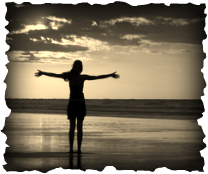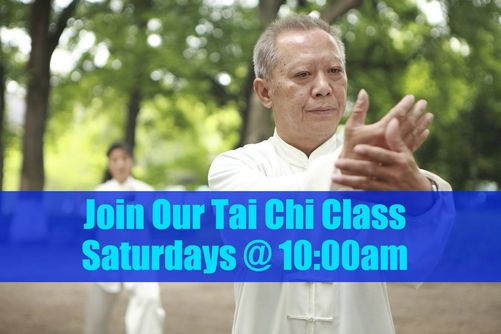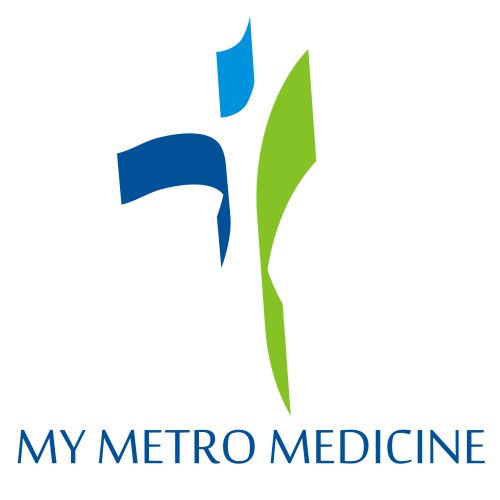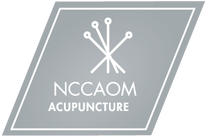Our mentally and emotionally-induced unnatural resistance to adjust our basic routines together with the seasons causes a clash between our internal environment (our physiology) and the external environment. Each morning for the past week, I have found myself to be a bit more tired than usual. There were nights when I went to bed a little late and nights I went to bed early, but it didn't make a difference. Some mornings I even felt a little tickle in my throat and others I noticed a slightly runny nose and little extra saliva in my mouth. Too much detail? Well there's a reason. When the seasons change, our bodies do the same. When the physical environment, and even the emotional environment, begin to change around us, our bodies, being the pros they are, automatically make an effort to change with them. If they didn't, we would enter an unfortunate state of dis-ease. Our mentally and emotionally-induced unnatural resistance to adjust our basic routines together with the seasons causes a clash between our internal environment (our physiology) and the external environment. This is the reason I personally prescribe the art and exercise of Tai Chi during these times of the year. Although there are numerous styles of this exercise, its overall gentle movements and calming nature provide one important element in this time of seasonal transition; Movement. A consistent Tai Chi practice during any seasonal transition, especially from summer to fall, will allow for a healthy experience of movement from one season to the next, no matter the type of climate. Whether you live in the northern or southern hemispheres, on the equator, or in Antarctica, there is always a transition in the environment, which has an inevitable effect on your body's physiology.
The main reason why practicing during the summer to fall transition is so important is due to the overall nature of the seasons. What I mean is, during summer exists the peak temperatures of the year in the external environment, which create physiological changes that lead to the release of heat (sweating) from our bodies. Or it can lead to something we refer to as warm diseases (think heat exhaustion) because our bodies are unable to release the heat inside of us leading to dangerous and sometimes life-threatening conditions. Additionally, as you may already be aware, there is a large amount of breathing occurring during the practice of Tai Chi. This breathing is a constant exchange of air and its contents between the external and internal environments which allow is to more rapidly create a level of balance between the two ultimately guided by a mindful approach to practice. After summer, we transition towards the colder seasons, first moving through fall; a season of dryness, chilly temperatures, and less and less movement in the outdoors (e.g. the beginnings of hibernation). So as you can see, if we live in these environments, then our bodies are certainly affected by them, and we must take appropriate action to adjust in parallel with them. What action is that? The action is Tai Chi. Which I believe, as a Licensed Acupuncturist, to be the single most effective form of exercise that offers and guarantees (with your consistent practice and close observation of your physiological changes) the opportunity for a healthy transition through any season change. So, if you usually struggle during these times of year, particularly from summer into fall and then into winter, start your Tai Chi practice as soon as you notice the seasons beginning to change. Don't wait! Unless of course you prefer to catch a cold, get the flu, dine on throat lozengers, suffer from sinus infections, and yell at the top of your fluid-filled lungs "I hate this season!" Peacefully,
0 Comments
Each day as I stand on the metro commuting to and from work, I am privy to some of the most interesting, outrageous, and often repulsive conversations that would make even the NSA want to stop listening in. Recently, while hearing the nitty-gritty details on someone’s view of their acquaintance at work, I found myself reaching deep into my pocket for my earphones faster than you could say “Is this my stop yet?” After I quickly and carefully placed them into my ears and cranked up the volume on whatever Pandora channel I could select the fastest, I found myself contemplating the impact of the words we choose to use in our conversations.
It was Rudyard Kipling who said, “Words are, of course, the most powerful drug used by mankind.” How true this is when we think of how far our words actually reach. Speaking our words into the ether that fills the space around us and leaving them to the wind of our breath to be carried contagiously to the tongue of the next vulnerable open mouth only to be spit back out like a venomous vapor unknowingly contaminating those around us, dead or alive. This leads me to several small and big-picture questions to which we can take a closer look. When I am speaking… 1. Do I think before I speak? 2. Do I take into full consideration the person I am speaking about? 3. Do I realize the true meaning of my words? 4. Am I imagining how others will translate and spread my words and the atmosphere I create? And most of all… 5. Do I think of (and honor) my elders when I am speaking? Let’s take a closer look at these five questions. Do I think before I speak? When someone says something that penetrates beneath your skin and draws closer and closer to your dignity as a human being, do you respond or do you react? What’s the difference, exactly? A reaction is simply your immediate and uninhibited reply to someone’s speaking or action. A response is, in essence, a controlled and well-orchestrated reaction. So, when you speak, are you reacting or are you taking the time to form an effective response? Yes, everyone should speak from his or her heart. But remember, even your heart pauses between beats to allow for graceful communication between itself and the organs with which it communicates so that you may stay alive. Do I take into full consideration the person I am speaking about? A friend recently reminded me of an old Chinese concept I often use to define my role as an Acupuncturist: “The person you are addressing hears what you have to say and also tries to hear what you are not saying.” When you listen to a conversation, do you only hear what is on the surface or do you also take into consideration the person being spoken about? This is like looking at the back of your hand but thinking about what the front of the hand looks like without turning it over. Now, imagine when you are speaking about a colleague at work who does not carry his or her own weight. Do you, before you speak, attempt to understand the possibilities of what may be occurring in his or her life or do you willfully jump to conclusions and rashly judge the person for what they have or have not done? Compassion is the key that will lock away the evils of judgment. Do I realize the true meaning of my words? I mostly mean this question in a quite literal sense. Have you ever considered the true meaning and etymological path of the words you use in everyday common language? Do the words you choose actually align with the description you are attempting to provide? I assert that a large majority of our words are misused as well as misplaced leaving our predecessors to wish THEY had earphones of their own (and an eclectic selection of Pandora channels). Just think of the wording used in the United States Constitution or the Declaration of Independence and then consider how many people you know speak as eloquent as our forefathers. In essence, we should be consciously choosing the words that accurately relay the message we wish to deliver in every conversation we engage in. Am I imagining how others will translate and spread my words and the atmosphere I create? Beyond my reactions and responses. Beyond keeping the other person respectfully in mind. And beyond the root of the words I choose, is the thought of where my words will travel to next. Not just in terms of gossip, but in terms of how open or closed my words are and what world they will create for the listeners. An example would be the difference between hearing a politician speak on civil rights versus hearing someone like Martin Luther King, Junior. A sense of possibility and profoundness is peacefully inserted into every spoken word in order for the listener’s mind to remain fully open and unobscured. So, speak as if you were changing the world…for good. Do I think of (and honor) my elders when I am speaking? I admit, this is not a usual question, but it certainly is a worthy one to ask. I am sure you can remember at least one grandparent who spoke carefully, openly, and meaningfully about those in their life. The words we use often are a mirror reflecting back to us the teachings we received throughout our youngest years of life and the lessons we have learned that carried through to the present. When speaking ill of someone, would your grandfather or grandmother approve? It reminds me of the common nutritional recommendation “If your grandmother can’t recognize it as food, it probably isn’t (something you should be eating).” The same is true for language. If your grandparents cannot recognize your words as being truthful and respectful, then you probably shouldn’t be saying them. To close, I implore you, the next conversation you take part in, to ask yourself these five questions. For your sake, the listener’s sake, and for the world around you once inhabited by your elders. Always ask yourself before speaking, do the words I’m about to voice carry the possibility of a new world that will serve myself, respect those around me, and honor my elders? Peacefully,  Each day I hear people speaking of health concerns; talking about their latest visit to the doctor, expressing their unease about a recent diagnosis, complaining about a medication (or number of medications) they are taking, sharing with others how they may have contracted a “seasonal illness” or the cold that is “going around”, or some other conversation-sparking health anomaly. I have one question. What is it that these people are NOT doing for themselves to ensure that they remain healthy and in a state of (balanced) wellness? Furthermore… Who is teaching them to live healthy (and happy) lives and what continues to motivate them to do so? And then there is the topic of responsibility which I’ll leave for another time. In your personal medical community, are your caregivers ACTUALLY educating and coaching you on how to take care of yourself? If you can answer “yes”, then answer me this; are they hoping that you will come back to their clinic in hope of building and expanding their business and making a larger profit, or are they actually investing in those they provide care to in a way that teaches people, for the most part, to stay OUT of their clinic? THIS IS EMPOWERMENT! And we need more of it. Every health/medical practitioner, I say, has the responsibility (and wherewithal) to educate people and coach them into a state of wellness in a way that the patient learns and understands over time and is able to carry out what they have learned on a consistent basis. Now, of course we all (including health/medical practitioners) lose track now and then, perhaps through overworking, eating less nutritious foods, or staying up an hour longer to catch up on Scandal or The Daily Show with Jon Stewart. However, if we have truly learned about our health on all levels, then we know what will help us to get back on track to wellness, whether it requires an afternoon or a whole day off from work, simply adding one or two veggies to the meal(s), or adding 30 minutes to each end of our sleeping time. If we don’t choose to do so, then perhaps we end up being easily frustrated because we put off eating lunch or going to the bathroom because of “the amount of work”, and we suddenly pour our frustration out on another person, be it at work, at the store, or at home. Regardless, when we begin to forget what makes us healthy, it is possible that we will slowly turn into the running of the bulls. At this stage, we begin to notice more and more those physical concerns mentioned earlier, and eventually make the call to the doctor (or overlook the opportunity to do so and end up in the back of an ambulance). Where did we lose track? What signs did we miss that might have guided us back on track sooner? If we saw them, what was it that kept us from pulling a U-turn or slamming on the brakes? So, I ask you. What are YOU doing to empower yourself so that you remain in a state of wellness? And, just as importantly, who guides you there when you begin to forget? If you believe your state of health and wellness is at all important, then create answers to these questions and make the choice to build a community of healthy lifestyles, healthy communication, and healthy relationships. This, again, is empowerment. And trust me, if you start today, your quality of life will improve greatly. (And you might save some money in the long run!) Our health is an investment with shares that cannot afford to be sold. By empowering yourself, you empower those around you. What other reason do you need than this?! Peacefully yours, |
Posted here are...inspirational ideas on healthy living through eastern medicine, optimism, and possibility through empowerment. Archives
March 2020
Categories
All
|
HOURS & LocationMondays-Thursdays 5:30-6:30pm (Tai Chi & Qigong only)
Fridays 5:00-6:00pm (Tai Chi & Qigong only) Saturdays 1:00-6:00pm (Acupuncture only) |
CONTACT Us |





 RSS Feed
RSS Feed



